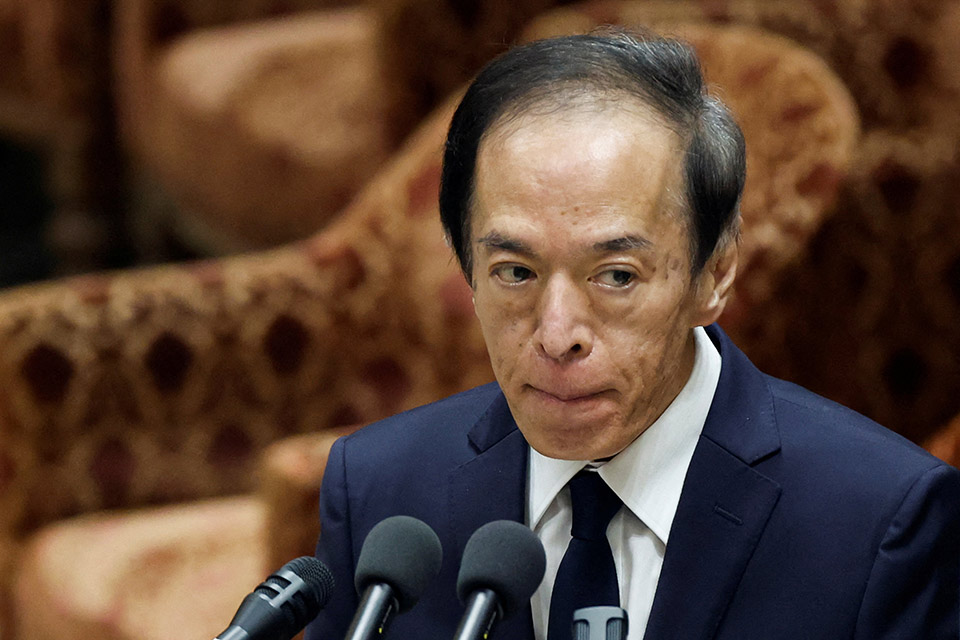If you are Japanese, you have spent the last three decades thinking of inflation as no more pertinent to your everyday life than the preppy local fashions of the 1980s: you’re aware that they happened, but it was all such a long time ago.
But suddenly – and it does feel sudden – core inflation in Japan is at about 4%, its highest level for 40 years. Nobody is talking about deflation anymore, which is quite the change when economists have talked about little else since about 1995.
It so happens that these unfamiliar circumstances coincide with a new leader at the Bank of Japan: Kazuo Ueda, who was announced as the successor to Haruhiko Kuroda in February, and will take up the post in April. Markets are trying to work out what to make of him – and so are bankers.
Kazuo Ueda – whose every public utterance down through the years is now being parsed for meaning – has said there is a negative to the control policy
After all, Ueda takes over a situation that looks more delicate than any in recent memory.
For as long as anyone can really remember, all the governor of the Bank of Japan has had to do was try to spur inflation a bit and keep the economy moving. But consider the position now: public debt in Japan stood at 263% of GDP in December, the highest of any developed nation. That was one thing in an era of zero interest rates, but it is quite another with potentially rising rates.
There is already muttering about Japan’s credit rating on this point.
Expectations
Ueda arrives with some (by Japanese standards) drastic steps already taken. Kuroda surprised markets by allowing 10-year bond yields to vary by 50 basis points around zero, double the previous band, in December, and it may be that the yield curve-control policy is axed outright.
Ueda – whose every public utterance down through the years is now being parsed for meaning – has said there is a negative to the control policy. Broadly, there is an expectation of further changes in monetary policy as inflation exceeds expectations.

Few are watching this more closely than Japan’s megabanks. For decades they have had to forge a living without the free gift that most of the world has accepted as normal: interest rates allowing them to earn a return without doing much at all except lend.
They have expanded overseas in pursuit of markets with better demographics and interest rate dynamics, and they have tried everything to build wealth management businesses in a home market where it is commonplace to hoard money uninvested.
Fitch took a run at this in a March report. Logically, it says, if inflation leads to tighter policy and higher market interest rates, that is a positive influence on the megabanks, because it will raise net interest income from loans. Japanese banks also tend to hold a lot of securities on their books, such as Japanese government bonds, so if they yield a higher return, that ought to enhance bank profitability too.
To really move the needle, though, Fitch reckons rate rises of over 150bp would be needed from here. And if that happens, it is going to produce a corollary reaction, and a problem: a considerable increase in interest burdens for borrowers who haven’t been used to paying meaningful rates of interest at any point in this century to date.
“We believe scenarios under which rates rose by this much would likely involve a relatively high level of macroeconomic disruption that would weigh on borrowers’ repayment capacity,” Fitch says.
Strategically, Japan’s bank chief executives are trying to work out how to operate in circumstances they must have doubted would ever arise.
Kanetsugu Mike, MUFG Group’s president and chief executive, told us in 2019: “This should be considered the norm, at least for the time being.”
Chris Flowers, founder of JC Flowers and one of the investors who created Shinsei Bank, told us in the same edition: “The most important thing is interest rates. In fact, the three most important things in Japan are interest rates, interest rates and interest rates.”
Impacts
Back then, he was referring to their stubborn absence. But now they’re here (or will be in earnest if the cap on government 10-years goes), what next?
Probably the short-term impact will be movement in the considerable proprietary books that Japanese banks hold: that is a quick way of earning a profit.
Longer-term ideas – like shifting lending patterns – will need to be weighed against the question of whether this new environment is a quirk or something likely to last longer. After all, although the Bank of Japan’s long-term 2% inflation target is achieved and beaten for the moment, the bank expects it to drop below that target again in the years to March 2024 and 2025.
Just as important is what the domestic corporate clients of the megabanks think. Money must have looked like it would be cheap for ever: that turns out to have been a mirage, though in truth Japanese corporates sit on so much cash that a higher cost of borrowing won’t hit them particularly.
CLSA says more than half of Japan’s non-financial companies in the Topix index are net cash. In the S&P500, the figure is 14%.
Nevertheless, if corporate attitudes to borrowing change and they instead just spend their stockpiles, then higher rates may not provide the bounty banks might have hoped for.
In the meantime, the international expansion of Japan’s banks across emerging Asia still looks sensible as a long-term position. Even if Japan gets meaningful interest rates for a while, that doesn’t change its dismal demographic position.




